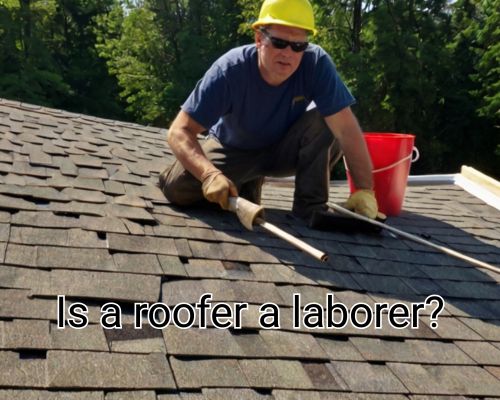Do Plumbers Deal with Roof Leaks? A Comprehensive Guide for Melbourne Homeowners
Roof leaks are a common issue that can cause extensive damage to your home if left unresolved. In many cases, homeowners in Melbourne, Australia, are unsure who to call when they notice water seeping through their ceilings. While roof leaks are often associated with roofing specialists, plumbers play an important role in dealing with such issues as well. So, the question remains: Do plumbers deal with roof leaks?

With Steve Arnie of Gutter Cleaning Melbourne, we’ll explore the role of plumbers in addressing roof leaks, the types of roof leaks they can fix, and how homeowners in Melbourne can efficiently address this issue with the help of plumbing services. By the end of this guide, you’ll have a clearer understanding of when to involve a plumber and when it’s time to call a roofing expert.
Understanding Roof Leaks and Their Causes
Roof leaks can occur for a variety of reasons, and they can be a homeowner’s worst nightmare. Whether it’s a small, persistent drip or a major leak, water damage can lead to mold, structural damage, and costly repairs if left unchecked. The most common causes of roof leaks include:
- Damaged Roofing Materials: Over time, roofing materials such as shingles, tiles, or metal sheets can wear out or become damaged due to weather conditions, aging, or improper installation.
- Clogged Gutters and Downspouts: Blocked gutters prevent water from flowing off the roof properly, causing water to pool and seep through the roofline.
- Flashing Issues: Flashing, the material used to seal roof joints, can deteriorate over time, leading to leaks around chimneys, skylights, and vents.
- Poor Roof Ventilation: Without proper ventilation, moisture can accumulate in the attic, leading to leaks or mold growth.
- Cracked Roof Valleys: Roof valleys, where two sections of the roof meet, are prone to cracking, which can result in leaks.
The Role of Plumbers in Roof Leaks
While roof leaks are typically thought of as a roofing issue, plumbers in Melbourne can play an essential role in addressing and preventing water damage caused by leaks. Plumbing professionals are skilled in handling water systems, and some of their expertise overlaps with issues related to roof leaks. Here’s how plumbers can help:
1. Identifying Internal Water Damage
Plumbers are trained to identify sources of water damage inside your home, such as leaking pipes, faulty plumbing, or blocked drains. When a roof leak occurs, water may travel through the walls or ceilings before making its way to the floor, often causing confusion about its true origin. A plumber can investigate the source of the leak and help determine if it’s related to plumbing fixtures like pipes, drainage systems, or even appliances like air conditioning units.
2. Gutter and Downspout Maintenance
Plumbers also provide services for maintaining and repairing gutters and downspouts, which are essential for directing rainwater away from your roof and foundation. If gutters are clogged, water can overflow and seep under the roof, creating leaks. Regular gutter cleaning and repairs can prevent these issues. Additionally, plumbers may assist in rerouting downspouts or installing new systems to improve water drainage.
3. Fixing Roof Penetrations
Plumbing fixtures that penetrate the roof, such as vent pipes, skylights, and exhaust fans, can become entry points for water if they are not sealed properly. A plumber can help by inspecting and repairing these roof penetrations. If the flashing or sealant around plumbing vents is compromised, water can easily infiltrate the home. Plumbers can reseal these areas and prevent leaks from occurring.
4. Emergency Leak Response
Plumbing services in Melbourne are often equipped to handle emergency leak repairs. If you notice a sudden, substantial leak during a storm, a plumber may be the first person you call. While roofing experts typically handle large-scale roof repairs, plumbers can quickly address immediate water-related issues to minimize further damage. They may provide temporary measures like tarping or patching up roof penetrations until a roofing contractor can arrive to perform a permanent fix.
5. Pipe Leaks and Roof Leaks: A Symbiotic Relationship
Sometimes, roof leaks are linked to underlying plumbing issues. For example, a burst pipe in the attic could cause water to spill over the ceiling, creating the appearance of a roof leak. In such cases, a plumber can pinpoint the problem with the plumbing system, while a roofer can repair any structural damage caused by the leak. By working together, both professionals can ensure that the issue is fully resolved.
For more, see Steve Arnie of Gutter Cleaning Melbourne.
When Should You Call a Plumber for a Roof Leak?
While roof leaks often require the attention of a roofing expert, there are specific scenarios where plumbers in Melbourne should be called to address the issue. Here are some situations where involving a plumber is the right choice:
- Water Stains on Ceilings or Walls: If you notice water stains on your ceilings or walls, it could indicate a problem with plumbing fixtures or pipe connections. A plumber can determine if the leak is caused by a plumbing issue rather than a roof problem.
- Clogged Gutters: If your gutters are overflowing, creating water damage on your roof, a plumber can clear the blockages and ensure proper water flow away from your home.
- Roof Penetrations: If a leak is coming from a roof penetration such as a plumbing vent or skylight, a plumber can reseal the area to prevent further water intrusion.
- Attic Moisture: If your attic is excessively moist or there’s standing water, it could be due to a plumbing issue like a leaking pipe. A plumber can inspect the attic and fix any leaks within the plumbing system.
- Dripping Sounds from the Ceiling: If you hear dripping water in your ceiling but can’t find the source, a plumber’s expertise in water systems can help trace the leak to its source.
When to Call a Roofer
While plumbers are experts in dealing with certain aspects of roof leaks, roof leaks that involve significant damage to roofing materials or structure require the attention of a professional roofer. Here are some signs it’s time to call a roofer:
- Significant damage to shingles, tiles, or metal roofing.
- Leaks coming from the roof itself, not from plumbing fixtures or penetrations.
- Cracks in roof valleys or around chimneys.
- Water pooling on the roof due to poor drainage.
Conclusion: Collaborating for a Leak-Free Home
In Melbourne, homeowners may not always know whether to call a plumber or a roofer when faced with a roof leak. In many cases, plumbers can help with identifying and addressing water-related issues that contribute to roof leaks, such as clogged gutters, plumbing penetrations, and internal water damage. However, for major roofing repairs, it’s essential to contact a licensed roofing contractor.
If you’re unsure whether your leak is plumbing-related or roofing-related, it’s always a good idea to consult both professionals. Collaboration between plumbers and roofers can ensure your home is protected from water damage, ultimately saving you time, money, and unnecessary stress.
By staying proactive and addressing leaks promptly, homeowners in Melbourne can maintain the structural integrity of their homes, preventing further damage and ensuring a dry, comfortable living environment.


